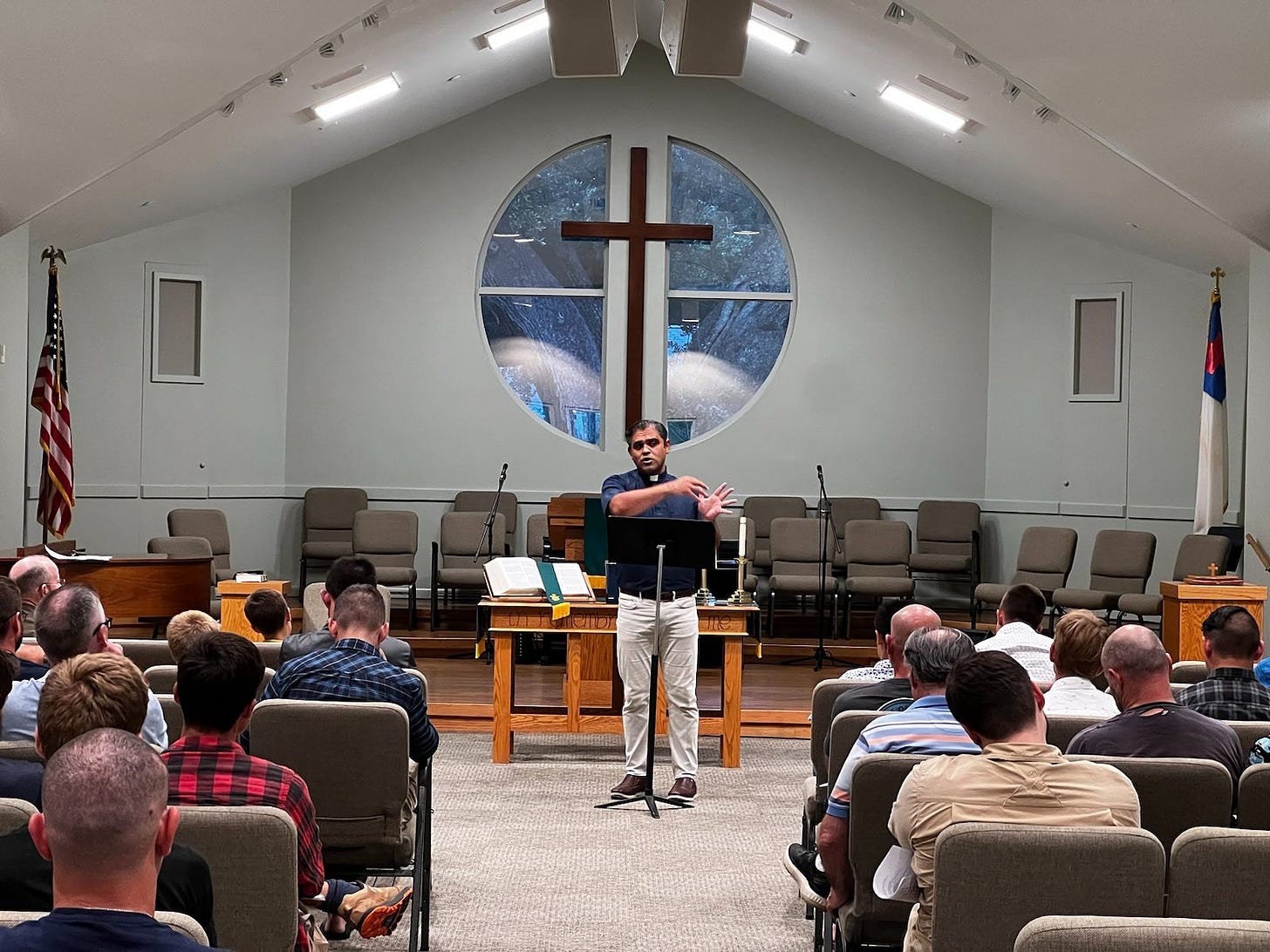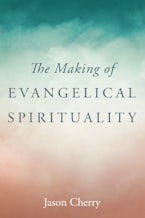The Life, Death, and Resurrection of Jayber Crow: A Review
Port William was the city on the hill; the city that had everything, which produced humans worth nothing.
The ignoble Jayber Crow can stir your appetite for the noble. It’s the simplicity of a good ol’ Port William boy that builds the charm of the book. In fact, the elitists in Port William receive the harshest blows and severest outcomes, as they should. But before delving into the anatomy of Port William, I wish to offer a story to set the stage.
But I must add that my grammar software is feisty as I type this story. It wants to correct the casualness of my writing with more acute alternatives. It is pretty humorous that Berry’s opposition to the role of technology comes like a prophecy, even as I write about it. Get thee, behind me, Troy!
The Inevitability of Autobiographies
So, here’s the story.
I sat in the room of a sweet family one day, and while we were sipping bourbon, we entered into some theoretical disputes about methods and such. He was not angry when he posed this question to me, but I confess it took me a minute to think carefully about his inquiry without sounding pompous. He began by saying he had read what I have written online or published for a long time. I was delighted because he was the fourth person in my reader’s complete quartet. Then, he said that he had always been disturbed by one element of my writing. And no, it wasn’t my propensity toward coining phraseologies. It was how I inserted my personal stories into my writings. He felt that it diminished the intent because it became self-focused.
His observations took me aback, and I responded by acknowledging that any writing element must be autobiographical. How can you exclude yourself from the very font of your fountain pen? Writing is deeply personal, so the question is, whose autobiographical features do you wish to read? I don’t know if I convinced him, but we continued with a pleasant evening.
The Berry Story-Parallels
Jayber Crow is intimately autobiographical. In an interview, Berry once noted that community is defined by place and people awkwardly seeking to understand their responsibilities. When he writes about the house on the river in the book, it parallels his personal experience when he bought a place by the Kentucky River called Hillside. The home required a lot of maintenance which he and his friends carefully sought to repair. The home was located in Port Royal, Kentucky. While he intended to make that home only a weekend getaway, a refuge from his weekly teaching duties, it ultimately became his home.
Jayber Crow is situated in a little place called Port William, where the people take responsibility for the place they are making. Jayber does end at the river, where he experiences the apex of joy and contemplation, even amid a home—much like his own— needing severe repair. The repairs became his private therapy. Even more so, it was a symbol of his life—perplexed at times by religious concerns, an unmarriageable bachelor surrounded by the stories of a little town losing its very place in an industrialized post-war era. Everything about Jayber needed repair.
What About Jayber?
Opening lines of novels are always intriguing and amusing. They set the stage for what repair will be needed in the main character's life. Since Creation's opening line in Genesis 1:1, image-bearers have tried to impress the cosmos with their opening refrains. Old Jayber sets the stage with pugnacity as if his fate is to live a life of unknowability.
I never put up a barber pole or a sign or even gave my shop a name. I didn’t have to. The building was already called ‘the barbershop.’
Jayber’s story begins with the anonymity of a barber shop. The opening is an image of his own life; an unmarried man walking about hearing stories of life with thousands of hair-leftovers christening the floor. Jayber wished to remain an unknown man. Therefore, he poured his reading into knowing the Greek classics and other fine assortments of books. He was the kind of reader that made for a good listener. Some read to show how much they read, while others read to understand those around them better.
One might say Jayber was destined to be a barber. His theology wouldn’t allow for such determinism, but that’s how his story goes. He was predestined to be known in Port William.
One never knows what the future may bring, but one should be prepared for life, death, and resurrections to occur in cycles. The Jayber Crow story works through that pattern, which I will use to summarize this tasty book offering.
The Life of Jayber Crow
Jayber was born into a life of sadness; a life cut short relatively young when his parents died a “few hours apart.” He was not quite old enough to consciously grasp death. But he was old enough to see death enter his home. His life was changed as Aunt Cordie and Uncle Othy took him under their wings. They consoled him with life after death, and then they died while giving him life. They left words and comfort in the life of Jayber, who found himself in an Orphanage called The Good Shepherd.
The Good Shepherd was the kind of place that ignited wild sentiments among a maturing youth. Jayber read and read and then found himself seeking places to read; places forbidden by the authorities that-be, but that never stopped a man from putting his eyes on good words.
Good Shepherd was a hotbed for Fundamentalist displays of zealous preachers selling the ministry only in full-time status. Anything less was a violation of the sacred. Jayber engaged the text and felt the spirit; like a reincarnation of young Samuel who heard the call of God into the ministry, well, Jayber also was called. But his own troubled exegesis led him to doubt whether the world could cohere in light of Jesus’ own words in the Gospels:
…If Jesus said for us to love our enemies—and He did say that, didn’t He?—how can it be ever right to kill our enemies.
Jayber was confronted by his pursuits of consistency; the same want for consistency which plagued the old liberationists in South America and now plagues the life of our town hero. Now, his inability to reconcile the Gospels with the existential realities of his own perceptions put his calling at a halt. The call of a preacher was never meant to be, but the call to be preacher-like did come to pass at a barbershop. He did not pastor his own church, but the old place became known after him. He was not the man who cut hearts, but the man who cut hairs. That calling suit him quite well.
Young Jayber grew into a conflicting world; perhaps as conflicting as he perceived the Gospels to be. And now, after many years, he finds himself again at the same place where his early life was formed, Port William. His early experiences with hair follicles make his transition into the barbershop a natural one.
Jayber’s life in Port William continues his early attempts to live independently. He was a classical liberal, if there ever was one. He told folks not to tread on him before it became a meme.
He fought the systems independently, and now he carried on his life as an auto-didact picking up an imagery here, a girl there, and a drink here and there. Jayber is the quintessential individualist.
The Death of Jayber Crow
But Jayber doesn’t die. It’s his individualism that does. It’s the fall of man that kills him. The sad stories about boys never coming home from the war and scenes like the death of Liddie, provide one of the most moving lines I’ve read in a long time:
And that is where my seeing in my mind stops. I see them there as if forever: the stricken boy, the mother on her knees at the roadside holding her dead child, the sun gone beyond the hilltop, and the chill of the evening coming down.
I think Jayber died that day. He watched his beloved lose her beloved. And that kind of grief, the one where you watch the one you care for suffer, is a different species of grief altogether. Maybe that scene does not carry the weight Berry intended, but to me, as a self-subscribed interpretive maximalist, I felt the sting of death really near.
I mentioned Jayber’s beloved, but it’s not yet time to introduce her. She belongs in the last category. Nevertheless, it’s significant to mention that Jayber’s death does come because of a lack of mission. His independence suffers from the root problem of all independence—trust in self as the ultimate of selves. And Jayber’s most fundamental death occurs precisely because of someone related to his beloved. The arch-nemesis of all common decency, the man who makes all things old and tedious, Troy Chatham.
And if you have read so far, I will tell you how Jayber dies.
Jayber was uncommonly engaged emotionally with Clydie. Clydie was the lady that provided Jayber fast-food access to accommodating pleasures. While their relationship is not defined in terms of sexual ambiance, there is a certainty that Clydie carries the bulk of Jayber’s time, and Jayber is eager to drive his life into hers. But that evening, life gave in to death. It’s the little things. It’s the circumstances and the observations of contexts that compel you to die to the life you think you need.
When Jayber joins Clydie for a dance and romances her into his arms, he sees Troy Chatham. Troy is caressing another woman, who is not his wife. Troy winks at Jayber like the debased fool whom Solomon warned:
He winketh with his eyes, he speaketh with his feet, he teacheth with his fingers.
It’s that wink that kills Jayber. At that moment, Jayber realizes that Troy sees him as just another in the list of charlatans and scoundrels. Jayber is confronted with living his days as another Troy—the very center of hedonism—or dying to self and becoming another altogether. If Port William were the city on the hill; the city that had everything, it did manage to produce humans worth nothing; among whom Troy stood as an incarnate trophy of such an award.
As Jake Meador noted:
And the thought that strikes Jayber like a thunderbolt is the horrifying fear that he and Troy are the same.
Jayber pens a note to Clydie wishing her farewell, departing from her life for good, and departing from his life of selfish gain for good. You see, Jaber wants to be like his beloved. But his beloved’s husband is like a double-minded man; unstable and rigid in his departure from the good.
The Resurrection of Jayber
To Jayber, Troy is the antithesis of goodness and beauty. On the other hand, his beloved Mattie Chatham, Troy’s wife, personifies the virtues of his ideal world. She is the one who gives, who loves, and who bleeds for the living and the dead. Her description is sublimely painted in words:
I had thought many times of her as I had seen her then, with the children so completely admitted into her affection and her presence—as, I thought, a man might be if he wholly loved her, if she wholly trusted him, a man who would come to her as trustful and heart-whole as a little child. I had thought of a flower opening among dark foliage, and of a certain butterfly whose wings, closed, looked like brown leaves but, opened, were brilliant and lovely like nothing but themselves.
Jayber is raised from the dead like a “flower opening among dark foliage.” He sees selfishness and self-preservation as dynamics of death. Jayber wants to be married to Mattie because Mattie heals those imprisoned by selfishness and self-preservation. But he knows he can’t have her. Even in his confused heterodoxy, he knows she belongs to another, though the other portrays his existence as a pile of dung. Yet, Jayber is married to her in some way. I do not doubt that he entertained giving her all his emotional and physical affections, but Jayber never did. He lived alone and slept alone “like the dead in the ground.” Instead, he gave of himself to her as a ghost gives of itself to the thing he wishes to attach in life, but can no longer do so. Thus, he tries to attach himself in death…but he can’t. The ghost lacks the very thing that can make relationships real—tangibility. Jayber can only see the thing and wish his life had been a different life. Yet, he pours his affections from afar, knowing that “maybe love fails here,” and perhaps he knew it did. But it never kept him from trying.
It’s not the sentimentality that guides Jayber’s resurrection. It’s the woman. It’s the bride of another. He sees her as a prayer that cannot be granted; an unresolved mystery. Still, that mystery, like Beatrice guiding Dante in the inferno, is the best he can wish for in this life. Perhaps she will guide him to newness of life. Perhaps the words exchanged near the river; or the silence of knowing each other’s presence. Perhaps something in those spoken or unspoken exchanges made him whole.
After all, Mattie is a survivor of life—a caring mother who exemplifies resurrections for others. And Jayber—a man living in solitary confinement—sees her as an escape from death. Mattie is the embodiment of a religion that Jayber needs. She is like Old Israel, attaching herself to a false husband with whom she has vowed allegiance. Jayber is the foreigner trying to find a way into this new religion, and only hoping from afar that grace will draw him in to taste and see that it is good.
And in the end, grace does not disappoint those who search. Grace extends her arms “and covers him all over like a light.” Mattie knows that while her life did not move towards glory, her life was the glory that others needed. So, she gave Jayber a taste of glory, and Jaber took it wholeheartedly like a sojourner hungry and thirsty. Jayber found grace.
If an analogy most closely resembles redemption, that’s it. Jayber is raised from the dead. He was unknown, but now he is known. The price of redemption kills and then makes alive.
Notations
My well-read friend and parishioner composed this poem called Mattie’s Song. I read and found it delightful and am publishing it with her permission.
Mattie’s Song
I never really knew him as
I had known these trails, walked often, ears awake to all the peace-songs-
In my father’s favorite woodland world.
But then my pledging eyes were lost.
Led by the glory of his face,
I stopped and listened to his voice,
—mesmeric, like the cardinals—
and let it stray me, let it stay,
deaf to the sound of work and waste
in every felling breath and step.
But how soothing was this wood-song
when I was young and newly loved,
How beautiful the sound of rest.
How faintly I hear it now, alone,
walking up this steadfast river.
Just a jay screaming for his nest,
and his secret stashes, scattered.
I tell him not to worry though—
The seeds he cannot find and all
That fertile tract turned bare will not
Be wasted here—it’s still our land.
My children’s children will one day
walk these trails, hear the same birds sing,
The same trees swaying in the wind,
And I will teach them all I know
Of Love and Landmarks, peace and trees.
--Hannah Calisch
For those interested, my traveling begins in a week where I will be leading chapel services and teaching in Monroe, LA, for the Jubilate Deo Camp.
My trip to Moscow, ID will be the following week, where I will teach for two weeks at the CALLED Conference on the Armor of God from Ephesians 6. The manuscript keeps moving forward. I am about 100 pages into the work and hope to spend the next ten days or so editing and putting touches on my draft before sending it out for editing. I taught a five-week class to a few saints and delivered a lecture at our men’s forum. The opportunities helped me crystalize a few thoughts on the flow of the theme.
I do not engage much in the art of book purchases these days unless it is crucial to a topic of research or writing. The once attractive “buying-books cause” because I want to build a massive library incentive has gone the way of all flesh. Frankly, spatial limitations demand it. So, instead, I receive free books from desperate publishing companies looking to get a review from a mediocre reviewer. I often oblige. And then, sometimes, I get books from acquaintances and friends. People, with whom, I have a vested interest. These are the fun ones to get. Such is Jason Cherry’s The Making of Evangelical Spirituality.
Jason challenges the notion of self-authority, what he calls mysterianism; the idea of internal revelation and pious meanderings. From what I read, Jason gives these pietistic popes a run for their glossolalias.
In dying, there is life,
Uriésou Brito






What an incredible review of “Jayber Crow!” Your insights were so valuable. I also immensely enjoyed Hannah’s poem.
I read Jayber Crow a number of years ago and enjoyed it immensely. Your essay reminded me why.